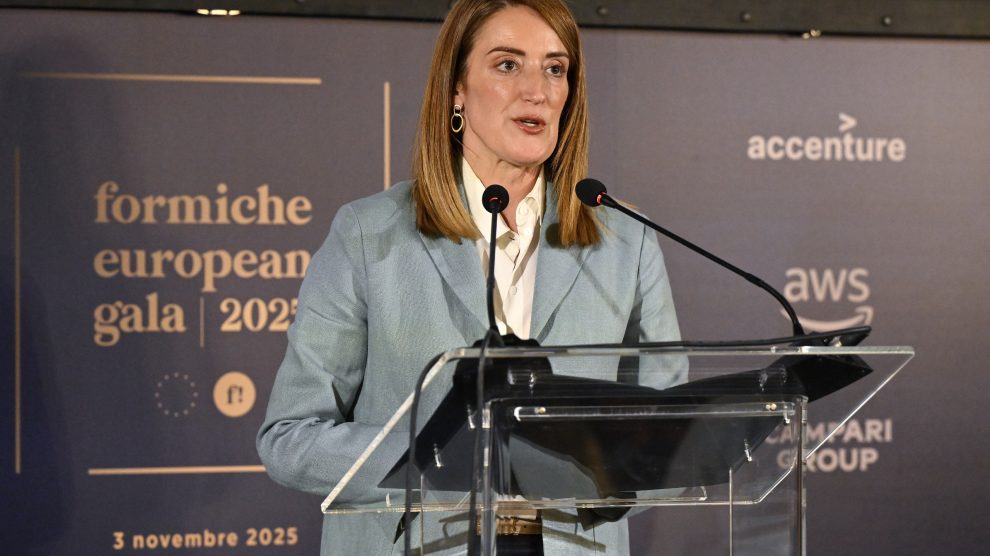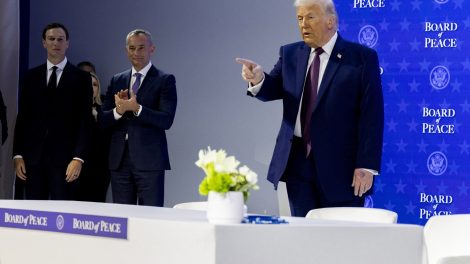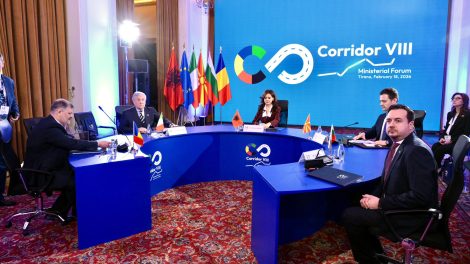“I come from a different political tradition than Giorgia Meloni,” EU’s Parliament leader Roberts Metsola said, “but we share the same goal: making Europe work for everyone”.
The discussion. touched on every major frontier of the EU’s external and internal challenges — from Ukraine to the Indo-Pacific, from the Balkans to the Mediterranean — with Italy emerging as a connecting actor across all these files.
Why it matters. Roberta Metsola, the youngest and one of the most active Presidents in the European Parliament’s history, has sought to redefine the institution’s profile — less bureaucratic, more strategic. Her agenda fuses institutional reform, reindustrialisation, and digital transition with a firm transatlantic alignment. In a Europe shaken by wars and uncertainty, she embodies the idea of an EU that acts rather than reacts.
Q: Over the past decade, Euroscepticism has thrived on the EU’s structural deficiencies. How is your leadership — and your constructive relationship with Giorgia Meloni — helping the European Parliament reclaim proximity to citizens?
A: Europe is often seen as too bureaucratic, too slow, creating rules without a soul. But Europe has a soul: the European Parliament, the institution directly elected by citizens. When things don’t work, we’re the first to feel and act.
- Leaving this project now would mean sacrificing our citizens’ future.
- Two-thirds of Europeans are asking for a common defence and a Europe that speaks with one voice. It’s time to listen.
- We have shown we can change: by reforming our procedures, we’ve moved from ambition to action in weeks.
- Italy plays a key role — I feel at home here. Giorgia Meloni and I have different traditions, but we share a goal: making Europe work for all.
Q: Enlargement and the Balkans — an area where Italy is a pivotal player. Which countries are ready to join, and what remains to be done?
A: Enlargement is one of Europe’s strongest tools for peace, stability, and strategic projection. The Western Balkans have made concrete progress, and the EU supports them through instruments like the €6 billion Reform and Growth Facility.
- Each country must advance based on merit and reform effort — credibility is essential.
- Enlargement is not charity: it’s a geopolitical investment in Europe’s security.
- We also need to adapt our institutions: what worked for 27 may not work for 33 or 35.
- The door must remain open for those who see Europe as their future.
Q: In the Mediterranean, Italy’s “Mattei Plan” and the EU’s “Global Gateway” are converging. Can this shape a new European vision for the region?
A: Absolutely. The Mediterranean is not Europe’s weak link — it’s our future. The Mattei Plan shows how we can transform it into an area of shared growth and equality.
- The EU’s new Mediterranean Pact builds on this same idea: partnership, not dependency.
- Southern Europe is Europe’s bridge to the Global South — and Italy is ideally placed to lead.
- Europe’s credibility depends on its cooperation with its neighbours: we must trust Southern Europe to take the lead.
Q: The war in Ukraine has tested Europe’s unity. How do you see the transatlantic relationship evolving — and Italy’s role in it?
A: Differences exist, but the EU’s unity on Russia has been extraordinary. Together, we’ve adopted 19 sanction packages, including a total ban on Russian oil and gas imports.
- This alignment with the U.S. shows the strength of our partnership.
- Italy, under Meloni and Tajani, has played a central role in sustaining Ukraine and transatlantic cohesion.
- Our bond with the U.S. is not only historical: it’s about democracy, trade, and shared security.
- Trade between the two sides reaches €1.6 trillion per year. Strengthening this partnership is key to global stability.
Q: Beyond Europe’s borders — the Indo-Pacific, Mercosur, and India are now strategic priorities. How should the EU position itself?
A: Europe must remain a trading giant — open, fair, and rules-based. We’ve signed over 40 agreements with 70 partners, and about 20 are in negotiation.
- Deals with Mercosur and Mexico are close; India is a key partner for the future.
- Trade must deliver real results for citizens and businesses — it’s about improving daily life.
- We’ll continue to defend European standards, farmers, and consumers. That’s what makes Europe unique — and why we are proud of it.
The bottom line. Roberta Metsola’s message from Rome blends realism and pride. Europe, she argues, must simplify, innovate, and project itself outward — not as a defensive fortress but as a confident actor.
- For her, Italy embodies this new European pragmatism: rooted in values, guided by results.
- From the Balkans to the Indo-Pacific, Europe’s credibility depends on unity of purpose.
- In Metsola’s words, “the soul of Europe is its Parliament” — and her vision suggests that its future will depend on those who, like Italy, still believe that Europe works when it acts together.





